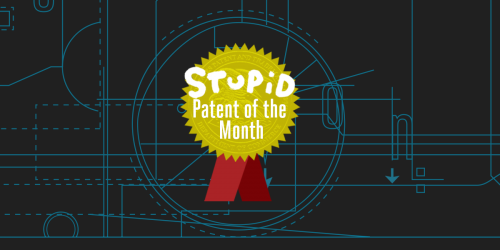Trying to succeed as a startup is hard enough. Getting a frivolous patent infringement demand letter in the mail can make it a whole lot harder. The experience of San Francisco-based Motiv is the latest example of how patent trolls impose painful costs on small startups and stifle innovation.
Motiv is a startup of fewer than 50 employees competing in the wearable technology space. Founded in 2013, the company creates fitness trackers, housed in a ring worn on your finger.
In January, Motiv received a letter alleging infringement of U.S. Patent No. 9,069,648 (“the ’648 Patent”). The letter gave Motiv two options: pay $35,000 to license the ’648 Patent, or face the potential of costly litigation.
The '648 Patent, owned by Motivational Health Messaging LLC (“MHM”), is titled “Systems and methods for delivering activity based suggestive (ABS) messages.” The patent describes sending “motivational messages,” based “on the current or anticipated activity of the user,” to a “personal electronic device.” It provides examples such as sending the message “don't give up” when the user is running up a hill, or messages like “do not fear” and “God is with you” when a “user enters a dangerous neighborhood.” Simply put, the patent claims to have invented using a computer to send tailored messages based on activity or location.
While the name “Motivational Health Messaging” may sound new, the actors behind it aren’t: the people associated with MHM and its patent overlap with the people associated with notorious patent assertion entities Shipping & Transit, Electronic Communication Technologies, ArrivalStar, and Eclipse IP, who we’ve written about on numerous occasions. Collectively, these entities have filed over 700 lawsuits, with Shipping & Transit setting the 2016 record for most patent infringement lawsuits filed.
Though MHM and its the patent may be new, the business model seems to be the same as the other, related entities: make patent infringement demands, often against small businesses, and leverage the high cost of litigation to extract settlements in the $25,000 to $45,000 range. (As of the date of this post, MHM has not yet filed any lawsuits and the related entities have been faring very poorly in court.)
Unfortunately, for many small businesses it often makes sense to simply pay for a license instead of spending years tied up in court challenging a patent. Receiving a demand letter frivolously asserting infringement is annoying enough. Even more frustrating is being forced to divert resources away from product development in order to defend against a non-practicing entity with bad patents.
Nevertheless, Motiv decided it would not go down without a fight. Motiv retained Rachael Lamkin, who replied with her own letter explaining why Motiv does not infringe, and why MHM’s patent is invalid. Lamkin also says that in the event of litigation, Motiv would seek to join the individuals behind MHM to the lawsuit—and make them personally responsible for “any sanction or fee award.” The letter laid out in painstaking detail many of the numerous deficiencies with MHM’s patent and infringement claim, and refused to pay MHM a cent. The complete set of materials sent to MHM can be found at the end of this post.
We hope that MHM does not push ahead with a business model that preys on the vulnerability of small businesses, and only succeeds when undeserved settlements are paid. Patent holders like this takes advantage of inefficiencies in our legal system, despite the extreme weakness of their cases. By publishing Motiv’s response letter and supporting documentation, Motiv and EFF hope that others may benefit and not pay the troll under the bridge.
If you have recently been sued or received a demand letter from MHM, contact info@eff.org.
Links to documents and correspondence between Motivational Health Messaging, LLC and Motiv, Inc.
- U.S. Pat. No. 9,069,648
- Motivational Health Messaging's demand letter to Motiv
- Motiv's response letter to Motivational Health Messaging
- Assignment records related to U.S. Pat. 9,069,648
- Corporate records related to U.S. Pat. 9,069,648
- Patent Office File History related to U.S. Pat. 9,069,648
- Patent Office File History for patent application related to U.S. Pat. 9,069,648
- Court records from Shipping & Transit, LLC v. Lensdiscounters.com
- Court records from Shipping & Transit, LLC v. 1A Auto, Inc.
- NIH Paper
- Lee prior art and invalidity chart
- Kaufman prior art and invalidity chart
- Steve prior art and invalidity chart
- Christ prior art and invalidity chart
- Ferguson prior art and invalidity chart
- Chittum prior art and invalidity chart
- Dalebout prior art and invalidity chart
- Hoffman prior art and invalidity chart





